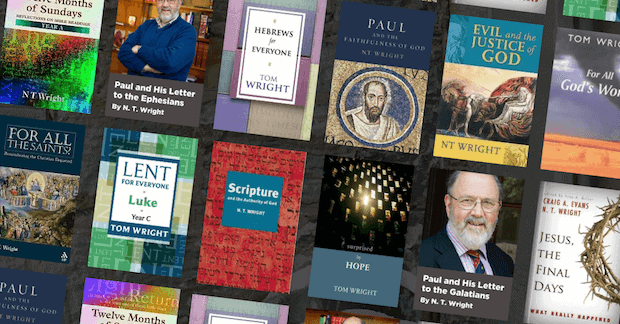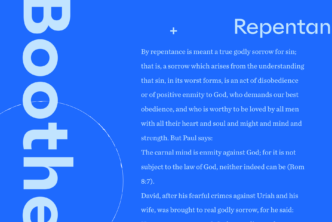In the below excerpt from N. T. Wright, the esteemed professor draws a connection between the Great Commission, 2 Corinthians 13:1–13, and portions of Isaiah 40. It’s taken from Twelve Months of Sundays: Reflections on Bible Readings, Year A.
The reflection is most rewarding if you’ve read the passages below.
Isaiah 40:12–17, 27–31
2 Corinthians 13:11–13
Matthew 28:16–20
***
The doctrine of the Trinity used to be caricatured as a piece of irrelevant theory: learned people using human philosophy to make simple things overly complex. The charge often rebounds on those who make it. The beginnings of trinitarian thinking, in the New Testament, are powerful and relevant, designed to help in time of need, to bind us together in love, to send us out on our mission.
People often puzzle, reading Matthew’s conclusion, over Jesus himself offering his followers the first-ever ‘trinitarian’ formula as their baptismal symbol. Actually, the whole passage is implicitly trinitarian; if there wasn’t a trinitarian formula somewhere we’d have to supply one to make sense of it all. What does it mean to say that all authority, in both created realms (heaven and earth), has been given to Jesus? What does it mean to say that he is truly the Emmanuel (1:23), with his followers to the close of the age?
The Trinity is, paradoxically, a doctrine about Jesus: it safeguards the reality of his humanness, then and now, as the true and final revelation of the one true God. It simultaneously unites him with, and distinguishes him from, the unseen source of all, on the one hand, and the breath of life that sustains us now, on the other. And the point of it all is mission: the God revealed in Jesus is the missionary God, sending his healing love into the world in Jesus, and now, under Jesus’ authority, sending Jesus’ followers out with that same healing love, of which baptism is the sign and seal.
So also in Paul. The trinitarian blessing is not bolted on to 2 Corinthians as an afterthought. It arises from the inner logic of the whole letter, as Paul wrestles with the grace of Jesus as the motive for his work (e.g. 8:9), learns to live by the love of God in good times and bad (e.g. 1:3–7), and celebrates the Spirit through whom he and his diverse, often difficult, congregations learn to see Christ in one another (e.g. 3:1–18). It all comes down to very practical and basic matters, as 13:11 makes clear: sort things out, pay attention to what you are told, agree together, live in peace. ‘The God of love and peace will be with you’; the Emmanuel promise again, guaranteed by the God-with-us person, Jesus, and renewed in daily reality by the God-with-us Spirit.
Behind it all stands the God of Isaiah, the God of creation and covenant. Since the very heart of his incomparable greatness is self-giving love, the more one contemplates his power and glory the more one discovers that it is strangely available, shared not least with those who are weary and exhausted. To understand the Trinity, ask yourself, as you read Isaiah 40–55, addressed to those in dire need: what might this God look like if he were to become human?
***
Want more from Dr. Wright? Browse his books and online courses.





